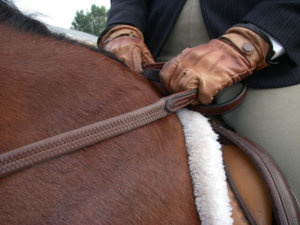Change Starts with You: Seizing the Reins

Sneak Preview! We are thrilled to share an excerpt about how you can start change as a parent for your family from the brand new book of our friend and colleague, Mark Bertin, MD. “Mindful Parenting for ADHD: A Guide to Cultivating Calm, Reducing Stress, and Helping Children Thrive” is essential reading!
Change Starts with Parents – Adjusting Mindset
“When a child lags behind her peers in speaking, adults instinctually adjust their own language and expectations. If a child is slow in learning to walk, they offer support without prodding her to catch up all at once. For children with ADHD, delayed performance or age-inappropriate behavior is often misattributed to lack of effort or not caring. Yet as with any developmental delay, ADHD requires that adults create appropriate interventions that can help children find their way.
It's normal that parents living with ADHD may feel frustrated, disappointed, or overwhelmed by a child's behavior, but a general concept holds true: if you expect something new to happen today without changing your approach, you're likely to increase your suffering. If your child's ADHD causes some kind of challenge that comes up repeatedly, you need to address it to create an opportunity for change.
By releasing expectations about what's age appropriate, you can recognize your child's capabilities as they currently are. While kids may outgrow certain issues with enough time, you can't expect more rapid progress without an effective plan. Instead of wrestling with how your child should be or should act, you can frame ADHD as a delay in acquiring a particular skill set.
One common trigger of problematic behavior is asking a child with ADHD to do something beyond her current capabilities. If she can't get ready for school without reminders, expecting her to do so will lead to a battle. If scholastic demands overestimate her present level of independence in completing assignments, she'll struggle in school. On the other hand, if you do nothing more than adjust the environment to help your child manage her ADHD, behavioral and academic improvements will follow.
Seeing ADHD as a disorder of self-management that manifests uniquely for each child allows for clear-sighted parenting. Whether your child has trouble shifting attention when playing, has a horrendously messy room, or never manages to bring the right books home to complete homework assignments, remember that these behaviors are symptoms of ADHD. Rather than punishing such behavior, you can develop a plan to support your child's success in overcoming it.
From what we say and how we say it to what we do and choose not to do, all our actions have implications. This fact underlies basic behavior management strategies.
You can reinforce and strengthen appropriate behaviors with positive feedback. You can decrease undesired behaviors by ignoring them or offering corrective feedback. These actions will educate your child by creating consistent messages about the effects of her choices. In this way, you can seize the reins from ADHD.
Article continues below...
What's Your Parenting Style?
Take a quiz to find out what kind of a parent you are.
Practice: Fifteen Breaths
As you journey deeper into understanding your child's ADHD and learning to manage it, continue to remain aware of yourself. Notice when you feel agitated, shut down, or exhausted. Those feelings may come and go, but they're as real as the neurology of ADHD. In the midst of building a plan to manage your child's ADHD, continue to emphasize the work you began in the previous chapter: taking care of yourself.
Finding even a few moments of downtime to rest, exercise, or talk with a friend can be challenging for a parent. Another way to carve out a break is to take fifteen mindful breaths (Gunaratana 2014); it only takes about sixty seconds. When you begin feeling rattled or exhausted, or when transitioning from one part of your day to the next, there's almost always a minute to be had.
To do this practice, focus on your next fifteen breaths without striving to make anything
happen beyond observing and letting go. Expect distracted thoughts and everything else that tugs at you. When your mind drifts, come back to wherever you left off counting. In an unforced way, bring your attention back to the moment and your breathing as often as need be.
So much of anxiety and mental fatigue stems from getting hooked by thoughts: to-do lists, fears, regrets, and on and on. The mind has a hard time letting go of whatever feels off. Without trying to suppress these thoughts, practice letting go of them for a moment. Amidst a hectic day, allow yourself the opportunity to not do or plan or fix anything for fifteen breaths. In this mindful minute, you can regroup and redirect yourself.”
Reprinted with permission: New Harbinger Publications, Inc.
Copyright © 2015 by Mark Bertin

